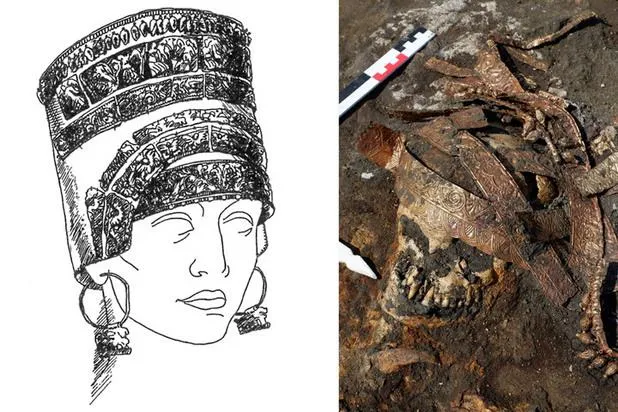Tomb Containing Three Generations of Warrior Women Unearthed in Russia
The four Scythians were buried together some 2,500 years ago
/https://tf-cmsv2-smithsonianmag-media.s3.amazonaws.com/filer/6d/45/6d450a9e-cd59-46eb-9000-206d05d3eee9/amazons.jpg)
The Amazon warriors of ancient Greek lore were once considered mythical figures. But in recent years, archaeological work and genetic analysis have identified women buried with weapons, horseback riding equipment and other accoutrements traditionally associated with warriors.
Earlier this month, a team led by archaeologist Valerii Guliaev announced the discovery of a 2,500-year-old tomb in which four such women were buried together. The findings were published in the journal of the Akson Russian Science Communication Association this week.
The women belonged to a nomadic group called the Scythians and were found in one of 19 burial mounds studied during a decade-long survey of the western Russian village of Devitsa, reports Ruth Shuster for Haaretz. The youngest individual in the grave was 12 or 13 years old. Two were in their twenties, and the last was between 45 to 50 years old.
Interestingly, says Guliaev in a statement, women warriors were the norm, not the exception, in Scythian culture.
“The Amazons are common Scythian phenomenon,” he adds. “Separate barrows were filled for them and all burial rites which were usually made for men were done for them.”

As Adrienne Mayor, author of The Amazons: Lives and Legends of Warrior Women Across the Ancient World, explained to National Geographic’s Simon Worrall in 2014, about one-third of Scythian women whose remains have been found to date were buried with weapons. Many sported war wounds.
The Scythians lived in small tribes, wore trousers—necessary when constantly riding on horseback—and fought with bows and arrows.
“If you think about it, a woman on a horse with a bow, trained since childhood, can be just as fast and as deadly as a boy or man,” Mayor pointed out.
The graves of the adolescent and one of the young women were robbed, but the other two burials remained intact. Notably, the oldest woman wore an engraved gold headdress called a calathos. The specimen is the first of its kind uncovered in the region, according to Shuster, as well as the first found in situ, perched atop its wearer’s skull.
“Of course, earlier similar headdresses were found in known rich barrows of Scythia,” says Guliaev, but the others were often found by local landowners and passed between many hands before reaching specialists.
“Here we can be certain that the find has been well preserved,” the archaeologist explains.
The older woman was buried with an iron dagger and a unique forked arrowhead. Lamb bones in the barrow suggest that the burial was completed in early autumn, while a lecythus vase hints that the women were buried during the fourth century B.C.
The other woman whose burial was left undisturbed was found with a bronze mirror, two spears, and a glass bead bracelet. Per the statement, she was buried in the “position of a horseman,” as if riding a horse for eternity.